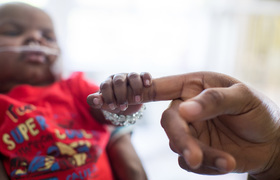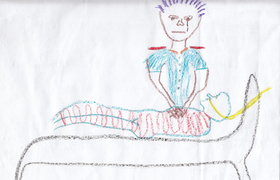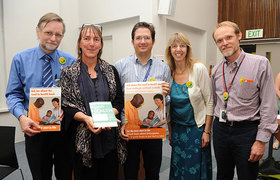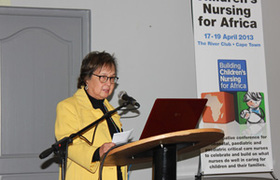UCT celebrates International Nurses’ Day
12 May 2021 | Story Niémah Davids. Photo Pexels. Read time 5 min.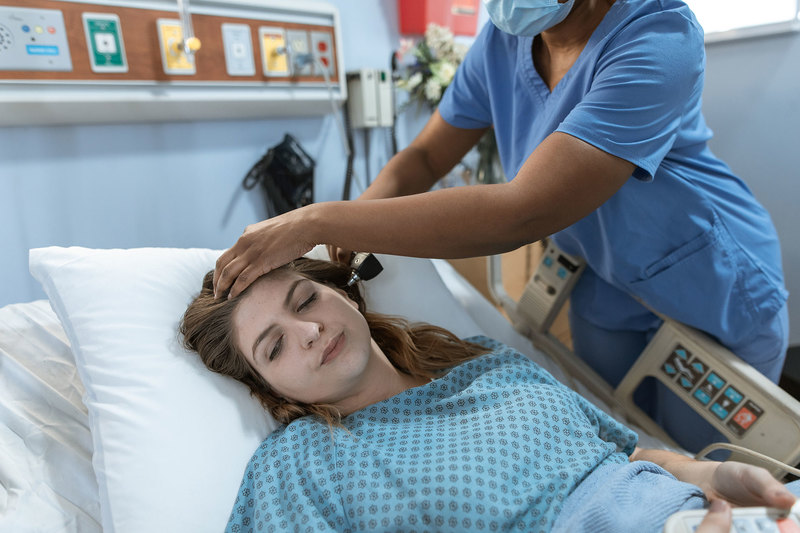
“Nursing is not just a profession, it’s a skill and an attitude. It’s about developing a close relationship with your patients. It’s the ability to make a difference in the world – one patient at a time. The compassion and passion that nurses bring to the profession are two of the most highly regarded and valued aspects of their role – not just in South Africa, but also in the world.”
Nicki Fouché, the head of the Division of Nursing and Midwifery at the University of Cape Town (UCT), shared these sentiments on International Nurses’ Day on Wednesday, 12 May. The celebration takes place annually on the birthday of Florence Nightingale (the founder of modern nursing), and seeks to honour all nurses and highlight the contribution they make to society.
“Nurses provide holistic, patient-centred care, and we believe in treating our patients with dignity and respect.”
Niémah Davids (ND): Talk to us briefly about the significant role that nurses play in our society.
Nicki Fouché (NF): Nurses provide holistic, patient-centred care, and we believe in treating our patients with dignity and respect. We empower patients by ensuring that they are equipped with the correct knowledge to manage their illnesses and teach them techniques on how best to cope during acute illnesses and in rehabilitation. Making a positive difference in our patients’ lives and in the lives of their families is what we strive for at all times.
ND: Tell us about UCT’s Division of Nursing and Midwifery, and the part it plays in teaching and research and in advancing skills and knowledge in the profession.
NF: We prepare nurses and midwives as clinical nurse specialists through research-informed postgraduate clinical programmes. We make use of multidisciplinary and collaborative approaches to teaching and learning, and [to] research. We aim to provide quality nursing and midwifery practice, using research and education. This, we believe, will help us to reach optimum patient and family-centred care within a primary healthcare setting. It’s with integrity and respect for our patients and each other, and our commitment to our work, that we can do the work that we do every day.
ND: How has the field of nursing evolved over the years?
NF: Arguably, nursing education has to be the most significant change in the field over the past 10 years. More universities have started to offer specialised degrees, and training has become formal and more complex. But at the same time, learning has become a lot more inclusive, which is wonderful.
With technology advancements and other changes in the industry, universities are always adapting to meet industry needs. And as nursing education evolves, today, programmes place emphasis on innovation, strategy and management to build transformative healthcare leaders. Ultimately, this is what we need.
ND: Many refer to nursing as a thankless job. How do we change that and give nurses the recognition they deserve?
NF: Maybe education on the role of nurses will help. Many people don’t realise what the job entails, and the physical and emotional effect it has on all of us. We experience many daily challenges, and in the past year, during the COVID-19 pandemic, all of it has been amplified. But despite everything – including the thanklessness – we do what we do because we love what we do.
“[The COVID-19 pandemic] has taught us the importance of self-care and listening to your body.”
ND: The COVID-19 pandemic has highlighted the extraordinary role that nurses play. What has the pandemic taught you?
NF: [The COVID-19 pandemic] has taught us the importance of self-care and listening to your body, irrespective of the craziness associated with our work during this pandemic. We’re of no use to anyone if we’re burned out. It has also taught us that life is short, and appreciating each other is essential to just get us through the day – losing so many colleagues has been hard.
ND: What is the one perception of nursing that you’d like to change?
NF: Nursing is not just a women-only profession. Yes, we have made giant strides to ensure that it becomes a more gender-neutral profession, but the percentage of male nurses in the field remains low. We need more men to take up nursing.
 This work is licensed under a Creative Commons Attribution-NoDerivatives 4.0 International License.
This work is licensed under a Creative Commons Attribution-NoDerivatives 4.0 International License.
Please view the republishing articles page for more information.







